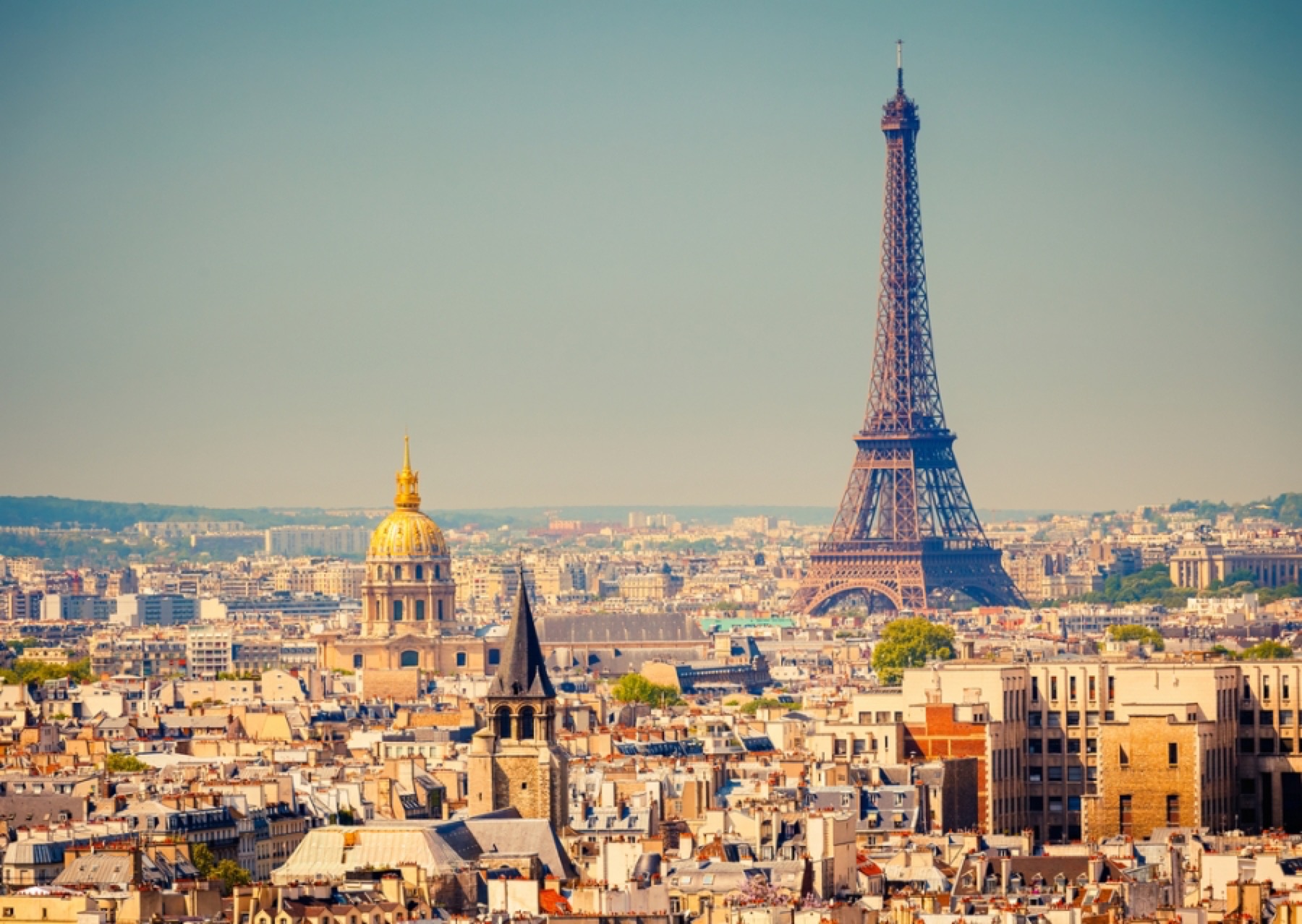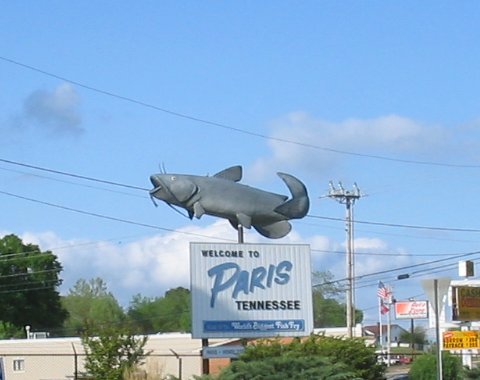
Paris, France. Courtesy of S. Borisov/Shutterstock.com
PARISIAN NASHVILLE
By Jonathan Bernstein
A Country Song in Paris
In a genre that lives and dies with its symbolism, “Southern Comfort Zone,” the latest single from country superstar Brad Paisley, plays with and manipulates Music Row signification. A choir sings “Dixie” in the background, and “home,” for the singer, is still biscuits and gravy and fireflies, but the proudest moments of “Southern Comfort Zone” come in the second verse, where the singer boasts of his travels:
I have walked the streets of Rome.
I have been to foreign lands.
I know what it's like to talk and have nobody understand.
I have seen the Eiffel Tower lit up on a Paris night.
I have kissed a West Coast girl underneath the Northern lights.
Brad Paisley's willingness to brag of wide-eyed Parisian romance in radio charting country may seem bold, or out of line with Nashville's conservative-leaning target audience. But in 2012, Music Row has witnessed a curious trend towards France—once responsible for freedom fries and stigmatized for its liberal socialism—as an emerging, prominent country signifier. In March, country mega-group The Band Perry released “Postcard From Paris,” which rose to number six on the country charts. The song, in which the singer realizes she's found a true love that she can’t have, uses the capital city as metaphor for a platonic, idealized love: “Like a postcard from Paris, when you've seen the real thing.”
That feeling is echoed on “Begin Again,” the latest single form Taylor Swift, released in October. The closest “Begin Again” gets to directly mentioning Paris in lyric is the mention of a café, but the song's music video, filmed on location in Paris, is a homage to French romance that Swift has called “a love letter to Paris.” Both Swift and The Band Perry have made their Parisian referencing chart-toppers a deeply ingrained part of 2012 country music, proudly performing both hit singles at this year’s televised industry events like the Country Music Association and the Academy of Country Music awards ceremonies, respectively. Swift's performance in particular, complete with accordion, outdoor cafés, and Eiffel Tower backdrops, capped off a year of Nashville Francophilia.
It wasn't always this way. For the most part, Paris and France have remained largely invisible as country signifiers, positive and negative, throughout the genre's history. When the city has popped up in Nashville songwriting, it's often at its own expense. In “(We're Not) The Jet Set,” the 1974 George Jones/Tammy Wynette duet, France’s elegant exoticism plays a large role in the initial set-up in the ode to unsophisticated love. Jones and Wynette croon the song's introduction:
By a fountain back in Rome, I fell in love with you.
In a small cafe in Athens, you said you loved me too.
And it was April in Paris, when I first held you close to me.
Rome, Georgia,
Athens, Texas,
and Paris, Tennessee.

It's made for a fine joke on Music Row that ninety miles northwest of Nashville lies Paris, Tennessee, population ten thousand. Jones and Wynette turn their nose at the French Riviera, quite happy instead being the “Chevrolet set.” Kenny Chesney's 1995 “Paris, Tennessee,” best embodies the standard stereotype of distanced, snobby high-culture that Paris has traditionally symbolized in commercial country. “We may not see no Eiffel Tower,” Chesney sings in a sarcastic come-on, “but I got a cousin that I want you to meet.” He sums up the tension between Paris, Tennessee, and Paris, France, best during a free association in the fading seconds of the song's outro: "Ooh la-la baby, voulez-vous, barbecue."
The wide and stark contrast between Nashville and Paris hasn't exclusively been occasion for humor. Maybe it's no surprise that there's nothing funny about John Denver's “A Country Girl In Paris,” but the 1988 country charting ballad perhaps best embodies country music's typical stance towards the foreign city. Denver's protagonist is walking the streets of Paris, but she's homesick and heartbroken, far away from a boy and a town that misses her. The first verse tells the story well:
A country girl in Paris, moonlight on the Seine.
Memories of Tennessee, Nashville in the rain.
It's such a contradiction, a heart that's filled with pain.
A country girl in Paris, dreamin' Nashville in the rain.
That “contradiction” has been a resonant dilemma in country. In 2008, Blake Shelton found a number one country hit echoing a similar sentiment on “Home,” where the singer, a traveling musician is sick of touring around the world and just wants to go home: “Another summer day / has come and gone away / In Paris and Rome / But I wanna go home,” Shelton bemoans. Like "Begin Again," the music video to "Home" finds the singer wandering around Paris, the Eiffel Tower looming in the background.
Swift, too, is all alone in France, living out Denver and Shelton's Parisian heartbreak, but suddenly Paris isn't where love ends but where it starts for a country girl. “Begin Again” and its live performances re-imagine Paris as a space for comfort, renewal, and perspective, much in the way Paisley and The Band Perry’s Paris-referencing singles have found new meaning from an unexpected source. Taylor Swift's Red has received much attention for its genre-hopping and experimenting, but Swift's French fantasy takes place on one of the most, and only, traditional country-leaning tracks on the record, an indication, perhaps, that Music Row has fully embraced the city as a welcome country symbol. If Paris is a city where a country girl finds or loses love, it's also a city you can send your parents a postcard from, a worthy symbol of your worldliness, or in the case of “Southern Comfort Zones,” a great way to gain perspective on your dear Southern home. And if for many Paris still is just a postcard, a faraway idea of romance, then these days Nashville is saying it's worth getting on a plane to go see the real thing.


